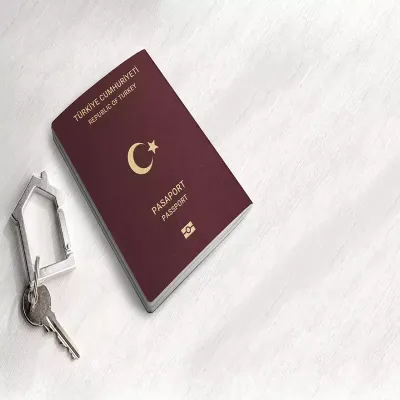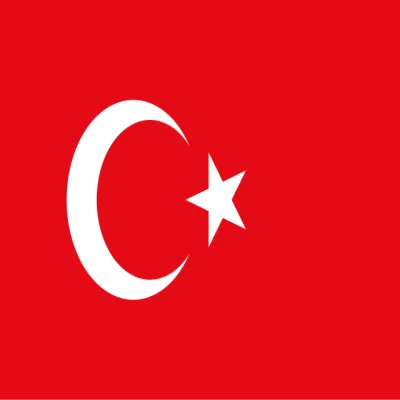Turkey, a country straddling two continents, offers a unique blend of cultures, stunning landscapes, and a rich history. For those looking to make Turkey their home, understanding the residency options and requirements is crucial. This guide provides an overview of Turkish residency, helping you navigate the process and settle into your new life in Turkey.
Types of Residency Permits
Turkey offers several residency permits to cater to different needs:
• Short-Term Residence Permit:
Ideal for tourists, business visits, and short-term stays.
• Family Residence Permit:
For spouses and dependents of Turkish citizens or residents.
• Student Residence Permit:
For those enrolled in Turkish educational institutions.
• Long-Term Residence Permit:
For long-term residents who have lived in Turkey for eight years or more.
• Humanitarian Residence Permit:
For those unable to return to their home country due to exceptional circumstances.
• Residence Permit for Victims of Human Trafficking:
For temporary protection.
Short-Term Residence Permit
The short-term residence permit is the most commonly sought after and is valid for up to two years. It can be renewed and is suitable for various purposes, including tourism, business, and attending language courses.
Requirements:
- Valid passport
- Completed application form
- Proof of financial stability
- Health insurance
- Proof of accommodation (hotel booking, rental agreement, or property deed)
Family Residence Permit
The family residence permit is for those married to Turkish citizens or foreign residents and their dependents. It is valid for up to three years and can be renewed.
Requirements:
- Valid passport
- Completed application form
- Proof of financial stability of the sponsor
- Health insurance
- Proof of accommodation
- Marriage certificate
Student Residence Permit
This permit is for international students enrolled in Turkish universities or educational institutions. It is valid for the duration of the study program.
Requirements:
- Valid passport
- Completed application form
- Acceptance letter from a Turkish educational institution
- Proof of tuition payment
- Health insurance
- Proof of accommodation
Long-Term Residence Permit
For those who have lived in Turkey for at least eight years, the long-term residence permit grants indefinite residency rights.
Requirements:
- Valid passport
- Completed application form
- Proof of continuous residence in Turkey for eight years
- Proof of financial stability
- Health insurance
- Social security contributions (if applicable)
Humanitarian Residence Permit
This permit is for individuals who cannot return to their home country due to exceptional circumstances, such as war or persecution. It is valid for one year and can be renewed.
Requirements:
- Valid passport
- Completed application form
- Proof of exceptional circumstances
Application Process
1. Online Application:
Complete the residence permit application form on the Directorate General of Migration Management (DGMM) website.
2. Document Submission:
Gather all required documents and submit them at the DGMM office on the scheduled appointment date.
3. Biometrics:
Provide biometric data, including fingerprints and photographs.
4. Fee Payment:
Pay the applicable fees for the residence permit.
5. Approval:
Wait for the approval and receive your residence permit card.
Renewal Process
To renew your residence permit:
1. Online Renewal Application:
Fill out the renewal application form on the DGMM website.
2. Updated Documents:
Gather and submit updated documents.
3. Appointment:
Schedule and attend a renewal appointment.
4. Fee Payment:
Pay the renewal fees.
5. Receive Renewed Permit:
Await approval and receive your renewed residence permit card.
Living in Turkey
1. Cost of Living:
Turkey offers a relatively low cost of living compared to many Western countries. Expenses vary depending on the city, with Istanbul being the most expensive.
2. Healthcare:
Turkey has a robust healthcare system with public and private options. Expats often opt for private healthcare for quicker service and English-speaking doctors.
3. Education:
Turkey boasts a wide range of educational institutions, including international schools that offer curricula in English and other languages.
4. Transportation:
Turkey has a well-developed transportation network, including buses, trams, metro systems, and domestic flights.
5. Language:
While Turkish is the official language, many people in urban areas speak English, especially in the business and tourism sectors.
Cultural Adaptation
1. Learn Turkish:
Learning basic Turkish phrases can significantly enhance your experience and integration into local life.
2. Embrace the Culture:
Turkey has a rich cultural heritage. Engage in local customs, festivals, and traditions to fully appreciate your new home.
3. Community Involvement:
Joining expat groups or local clubs can help you build a social network and feel more at home.
Conclusion
Securing Turkish residency is your first step towards living and thriving in this vibrant and diverse country. Whether you're moving for study, work, or retirement, understanding the residency options and requirements will ensure a smooth transition. With its strategic location, rich culture, and welcoming environment, Turkey offers a unique and fulfilling lifestyle for expatriates from around the world.
.webp&w=3840&q=100)














